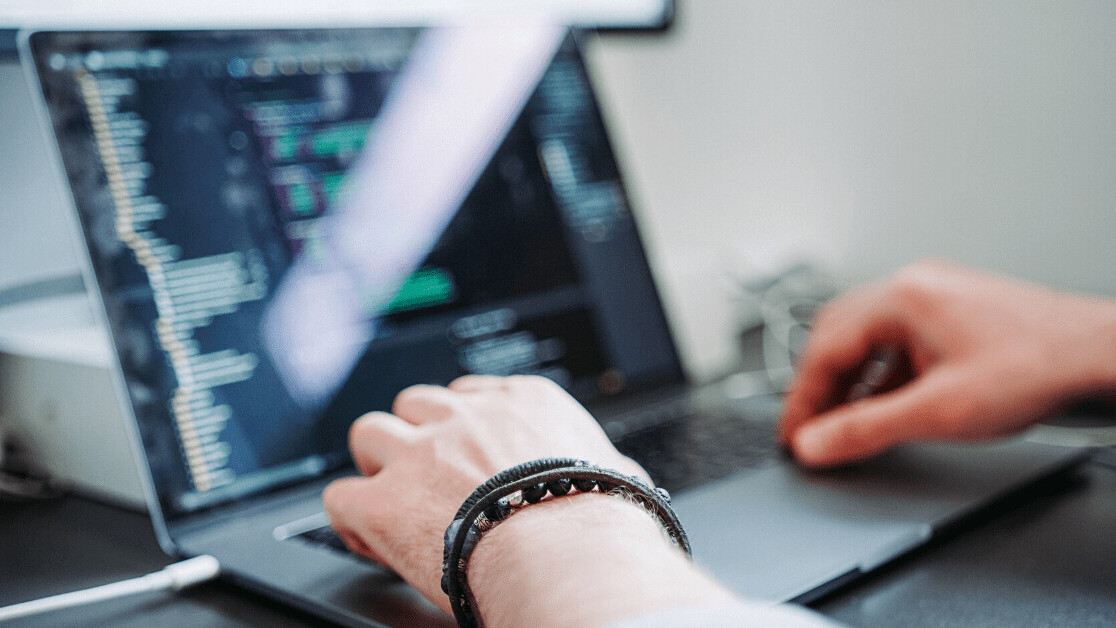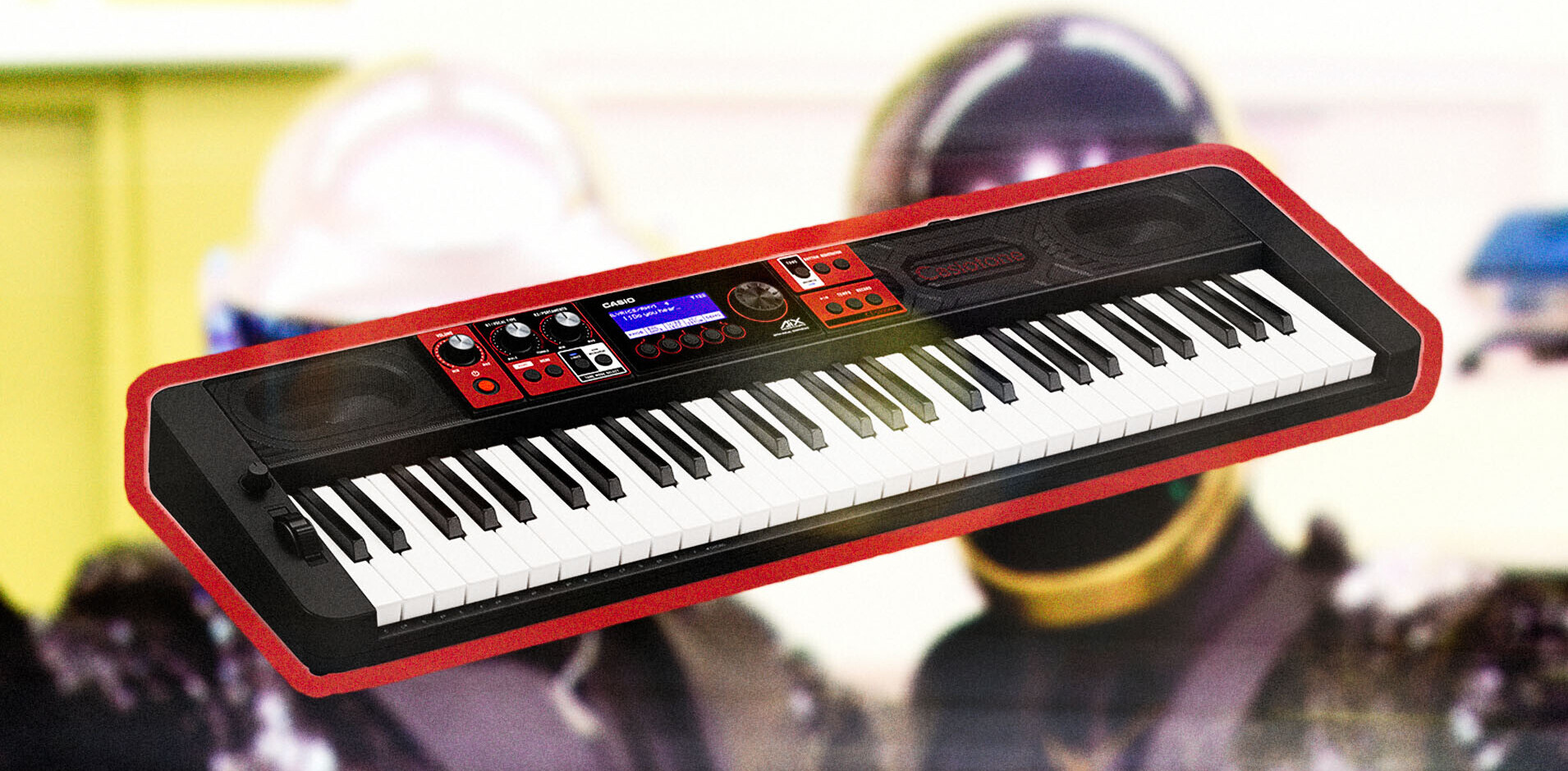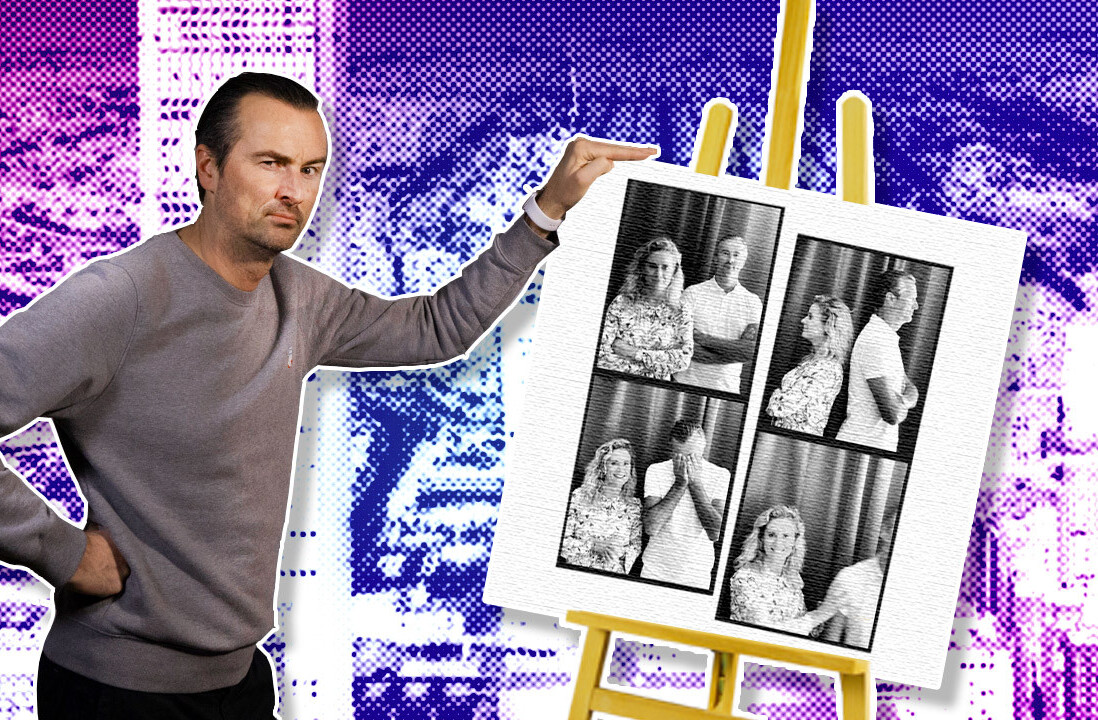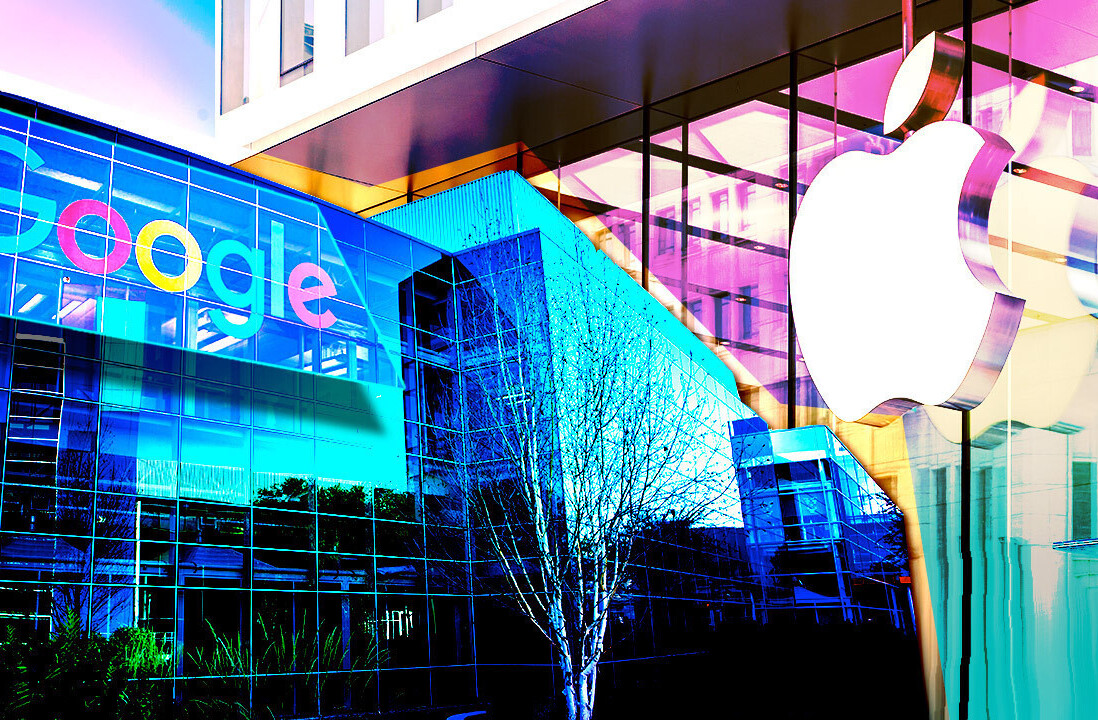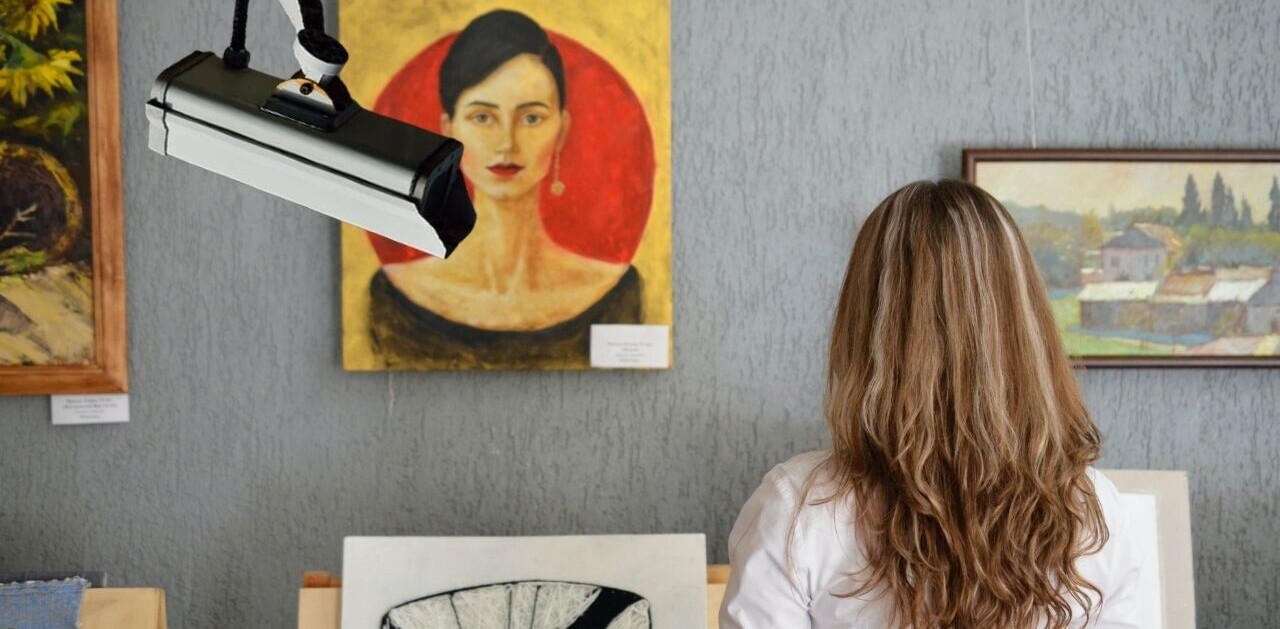Should creativity be an essential part of our learning process? Or does creativity have no other purpose than fun and entertainment? What are the possible benefits of taking a more creative approach to learning programming?
According to the Bureau of Labor Statistics, the demand for software engineers is expected to see a 26% increase by the end of 2028. Coding bootcamps have seen a rapid expansion, from producing a mere 2,000 graduates in 2013 to over 20,000 graduates in 2018 .
[Read: How the Dutch government uses data to predict the weather and prepare for natural disasters]
For a passionate technologist like me, these numbers bring little comfort. As we focus more and more on the advantages of learning programming for monetary reasons, the essence of our curiosity towards technology seems to be lost.
To help me answer all these questions and gain some perspective, I met with senior software developer Panos Pandis for a friendly conversation on creative coding and its possible benefits for us as a society.
A personal perspective on the place of technology and creativity in our world today
What do you think about the statement: “the world needs more programmers”?
It might be a fact but I don’t like to just accept facts. Why do we need more programmers? Because more people are trying to make a profit out of computing, and out of technology in general.
That’s not a natural need, it’s a phenomenon that we, as a society, created and that we’re feeding very quickly, at a rate we can’t support. That’s why we “need more programmers.”
If it’s about having the giant tech companies become even bigger then I feel it’s wrong. If the motivation came from a need for research, for finding solutions to bigger problems like alternative energy sources or environmental issues, then I could accept that we need more programmers.
But that’s not where this general need for programmers comes from: it comes from big companies and the whole startup/entrepreneur hype. No one is thinking of the impact on resources all this is creating.
Digitalization brought solutions but also made our lives faster and faster. It’s putting more demand on us instead of realizing the sci-fi dream of solving all our production problems so we can be on a constant holiday.
Reflections on our relationship with technology and creativity
Despite my grief about how we use technology, I don’t believe there’s any turning back. Because of that, I think we should learn to use technology properly, for our own profit. For example: to safeguard our rights, privacy, and democracy.
We shouldn’t just let ourselves be carried away by people and businesses controlling it. We need to remember that even though our reality is different now with the internet, we’re still using the same old business models, only with a different kind of product.
In many ways, it’s still the same story: people in control of power trying to manipulate others by artificial restrictions on knowledge, production, and copyrights.
We need to be more clever, more alert, more informed.
At the same time, we can’t constantly be ready for a revolution to happen. We also need to relax and live our lives… but staying informed is very important. People shouldn’t be lazy when it comes to understanding their devices and understanding their power.
I think we need more people that love programming for what it is. If you love programming, you see it more like a form of magic, you don’t see it only as building blocks. Even though, in its core concept, it’s completely the opposite. There’s no magic in programming, it’s all 1s and 0s.
On the creative side of things, I believe as a society we should reclaim public art. Art should be spread out, people should be craving for beauty and for art.
Beauty is gone, it’s been replaced by advertisement. Everyone recognizes a Coca Cola bottle or an iPhone. I believe these things should be replaced by things we own, popular art that we produce and want to spread out because it means something to all of us, as a community.
Creative coding: understanding the magic behind science and technology
Everything started when I discovered Processing.
Note from the author: From their website: Processing is a flexible software sketchbook and a language for learning how to code within the context of the visual arts.
When Radiohead released their album “In Rainbows”, they also released a song, “House Of Cards” I think it was.
For that song, they made a video clip using laser scanners. These scanners are normally used to scan buildings but they used them to scan the faces of Thom York, the singer, and some houses in a neighborhood.
Laser scanners produce an array of points in (x, y, z) space. They used these points to recreate the scenery by spreading them out in a 3D environment using Processing.
The amazing part is that Radiohead released the data and the code they used to create the video. Then, they said to all of us: “Now it’s your turn. Take the data and the code and do your own thing.”
I was blown away and discovered Processing like that.
Later, when I had my internship at Corfu University in the Department of Audiovisual Arts, I was able to collaborate with University professors and other students. I really felt I found something special to do with code. That’s when I knew this direction was for me.
It’s nice to write code that keeps infrastructures running, etc… but we should be doing more of this kind of stuff with code.
Why?
Because I think we are living in times where we lost touch with the mythical, the sense of magic. No one is paying much attention to beauty anymore.
I’m not talking in the sense of common beauty. I mean beauty in terms of Art, of wanting things around you to be vibrant. Again, I don’t want to define beauty… For me, it’s about this higher-order beauty that you can witness in nature, for example.
With technology, we each have the power to create an environment that is beautiful and inspiring to us, a personal representation of our own weird and magical inner world.
Now, we could use interactivity and procedural/digital art spread out in public and private spaces to create “magic” and give substance to the “myth”.
I think people should pay more attention to that and use technology more for this kind of purpose.
Thoughts on past and present mindsets behind the digital art movement
When digital art came into the picture, I think there was an enforced feeling that we need to move away from tradition, to do something that represents the device and the theory behind it.
Behind the computer, there’s math. That’s the origin of the “digital feeling”: the visualization of all these mathematical concepts.
It makes sense because people were exploring a new medium. People were wondering: “How does the computer think about that? What would this action or formula look like?”
But we went through this in the 90s and early 2000s. Many statements were made and now we need to move on. We are entering a time where people use these concepts as tools and there are mixed opinions as to how digital pieces of art should be.
Some people still use computer-generated art as a statement. This kind of mindset is a bit annoying to me. I can’t appreciate something just because it’s done with code.
If there’s no real reason, no interactivity, no complexity that you wouldn’t be able to produce with traditional means, then its not really a breakthrough. To me, computer-generated art needs to have something extra. It has to promote the need for using a complex tool.
With technology, we each have the power to create an environment that is beautiful and inspiring to us, a personal representation of our own weird and magical inner world. I think people should pay more attention to that.
Reflections on the benefits of integrating creative coding in our education systems
Looking back at your education and knowing what you know now, is there anything you’d like to see evolve in the way we teach computer science and programming?
InGreece, it’s very much about technical knowledge and memorization, understanding complicated concepts in math or physics. Compared to other countries, from what I heard, we’re taught much more difficult concepts in high school whereas, in other places, these things are only taught at a University level.
But this way of teaching is not effective though.
The system tries to squeeze all this information in your brain but nothing goes in because there’s no feedback, no interactivity between you and the concepts you learn. You just “know stuff” and then pass the exam.
Now, there’s no excuse for not using programming to teach math or physics.
If you only learn the formulas, they’re just formulas on paper: they don’t mean much and it’s difficult to understand how they can be applied in real life. But if you can see the graphs… the graphs are amazing!
If you can see what happens when you repeat a formula a thousand times, a million times… then a formula becomes something mind-blowing.
Learning like that would’ve probably kept me more interested in math and physics when I was in school.
Using Processing to teach others how to program
I’m not saying that Processing is the best thing to learn programming but I think it’s the most approachable for newcomers. At least, it’s the first language that hooked me into doing something with code.
Traditionally, students learn all these algorithms and have all these exercises. That leaves them with the impression that programming is a way of doing something clever, some calculations but they don’t really understand how it could affect their lives.
So I chose to teach programming with Processing because I believe its the language to get someone into programming and keep them hooked by giving them something tangible to hold on to from the very first lesson.
That’s what using Processing did for me. With just a few numbers, a few words, I already had something to work with that I could see on the screen and that kept me going.
If you can see what happens when you repeat a formula a thousand times, a million times… then a formula becomes something mind-blowing.
Final thoughts: what does this mean for all of us?
Do you think people who don’t necessarily want to become professional programmers could benefit from learning programming?
Yes, I do. It’s the same as keeping yourself informed with politics and being involved with what’s happening in the world.
The more capable you are to understand and react to something that affects you, the more you’ll be able to resist, to make appropriate demands, to understand what’s going on without being manipulated by people controlling production and knowledge.
I think learning programming is extremely important. It’s the new way of being literate at the moment.
Someone with basic programming knowledge, even if they are not using it or don’t want to be programmers themselves, can at least stop being afraid of the machine.
You know, this mindset when people just accept the fact that something is not working, the “computer says No” attitude. We need to escape this mindset. As a society, we need more people who are not afraid to touch, modify and “hack” their devices.
When I say hacking, I mean in the sense of being curious, of not being afraid of technology and truly own what we own.
To have a device not restricted by copyright and live with a mindset that “No, this device is in my physical space, therefore, I can do whatever I want with it” and have the knowledge to do so.
31-year-old Panagiotis Pandis is a senior software developer from Corfu Island, Greece. Currently working in Oxford as a Java developer for the UKMedical Research Council, he playfully describes himself as a “data plumber” as he works to collect, evaluate and transform mouse genomics data.
In his free time, Panos is a long-time avid creative coder. More recently, he’s been exploring sound manipulation and live coding by using software such as SuperCollider and FoxDot. Some of his recent work includes “Askos”, a collaborative project with sociologist and multimedia artist Tania Tsiridou in partnership with the EASTN (European Art Science Technology Network).
This article was written by Mynah Marie, a web developer, writer, musician, and speaker. She combines her passion for music and programming by performing as a live coder under the name Earth To Abigail. Curious beyond repair, her writing is inspired by the unconventional sides of creativity, mostly related to programming and technology. You can read the original piece here.
Get the TNW newsletter
Get the most important tech news in your inbox each week.
